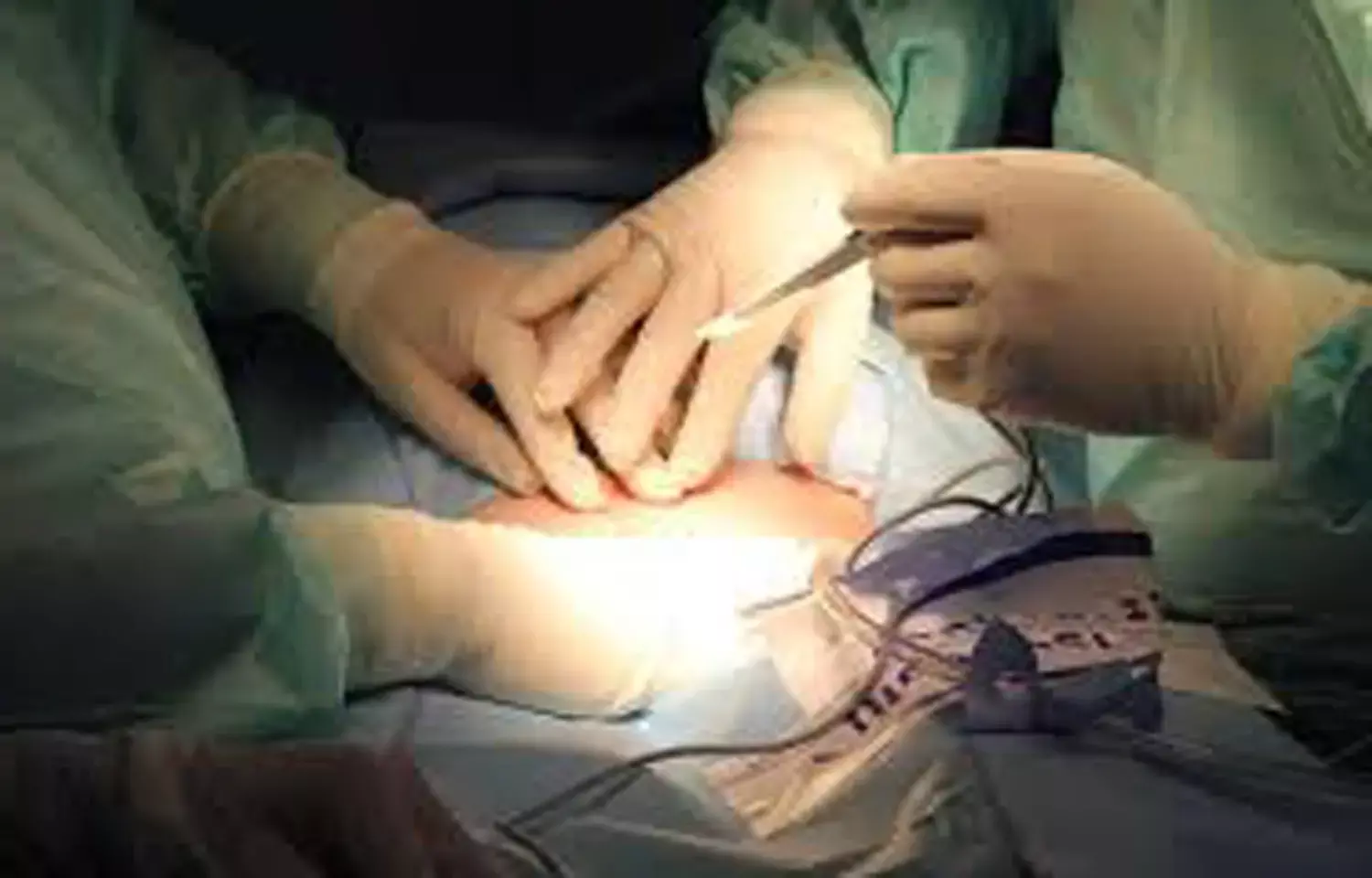- Home
- Medical news & Guidelines
- Anesthesiology
- Cardiology and CTVS
- Critical Care
- Dentistry
- Dermatology
- Diabetes and Endocrinology
- ENT
- Gastroenterology
- Medicine
- Nephrology
- Neurology
- Obstretics-Gynaecology
- Oncology
- Ophthalmology
- Orthopaedics
- Pediatrics-Neonatology
- Psychiatry
- Pulmonology
- Radiology
- Surgery
- Urology
- Laboratory Medicine
- Diet
- Nursing
- Paramedical
- Physiotherapy
- Health news
- Fact Check
- Bone Health Fact Check
- Brain Health Fact Check
- Cancer Related Fact Check
- Child Care Fact Check
- Dental and oral health fact check
- Diabetes and metabolic health fact check
- Diet and Nutrition Fact Check
- Eye and ENT Care Fact Check
- Fitness fact check
- Gut health fact check
- Heart health fact check
- Kidney health fact check
- Medical education fact check
- Men's health fact check
- Respiratory fact check
- Skin and hair care fact check
- Vaccine and Immunization fact check
- Women's health fact check
- AYUSH
- State News
- Andaman and Nicobar Islands
- Andhra Pradesh
- Arunachal Pradesh
- Assam
- Bihar
- Chandigarh
- Chattisgarh
- Dadra and Nagar Haveli
- Daman and Diu
- Delhi
- Goa
- Gujarat
- Haryana
- Himachal Pradesh
- Jammu & Kashmir
- Jharkhand
- Karnataka
- Kerala
- Ladakh
- Lakshadweep
- Madhya Pradesh
- Maharashtra
- Manipur
- Meghalaya
- Mizoram
- Nagaland
- Odisha
- Puducherry
- Punjab
- Rajasthan
- Sikkim
- Tamil Nadu
- Telangana
- Tripura
- Uttar Pradesh
- Uttrakhand
- West Bengal
- Medical Education
- Industry
Alcoholic chlorhexidine gluconate halves postoperative infection risk: Study

Researchers have found in a new study that use of Alcoholic chlorhexidine gluconate halves postoperative infection risk.Surgeons could dramatically reduce the risk of infection after an operation by simply changing the antiseptic they use.
New analysis by the University of Leeds and the University of Bern of more than 14,000 operations has found that using alcoholic chlorhexidine gluconate (CHG) halves the risk of infection in certain types of surgery when compared to the more commonly used povidone-iodine (PVI).
Infection after surgery could result in a range of issues including readmission to hospital and possibly further surgery.
Switching antiseptics to help tackle infections would be a simple process for healthcare providers, and could be rolled out globally, according to the new research, published in the Annals of Surgery.
Lead author Ryckie Wade, Clinical Research Fellow at Leeds' School of Medicine said: "Infection is the most common and costly complication of surgery.
"Even though the risk of infection in these types of surgery is low (about 3%), anything we can change to reduce this risk is very important.
"Our findings suggest that the number of infections may be halved if surgeons used a different skin cleaning agent before surgery."
The team reviewed 17 existing studies, comparing infection complications of five different antiseptics used in 14,593 operations.
The initial research was carried out in North America, Europe, Asia, South America, and Australasia on patients who had undergone a range of surgical procedures including orthopaedic, cardiac, plastic and burn reconstruction surgery, cranial neurosurgery, open inguinal hernia repair and neurosurgery.
Using a statistical technique called network meta-analysis, the team showed that CHG was safe and twice as effective in preventing infection after "clean" surgery on adults compared to PVI (alcoholic or aqueous), which has been widely used as an antiseptic since its discovery in 1955.
Clean surgery is defined as a procedure outside the respiratory, urogenital and digestive system where there is no inflammation or infection and where the wound is not caused by a trauma.
Mr Wade said he hoped the new findings would lead to a change in healthcare practice: "This research should be of benefit to all healthcare professionals around the world who perform any type of invasive procedure on a 'clean site'."
https://journals.lww.com/annalsofsurgery/Abstract/9000/The_Comparative_Efficacy_of_Chlorhexidine.94275.aspx
Hina Zahid Joined Medical Dialogue in 2017 with a passion to work as a Reporter. She coordinates with various national and international journals and association and covers all the stories related to Medical guidelines, Medical Journals, rare medical surgeries as well as all the updates in the medical field. Email: editorial@medicaldialogues.in. Contact no. 011-43720751
Dr Kamal Kant Kohli-MBBS, DTCD- a chest specialist with more than 30 years of practice and a flair for writing clinical articles, Dr Kamal Kant Kohli joined Medical Dialogues as a Chief Editor of Medical News. Besides writing articles, as an editor, he proofreads and verifies all the medical content published on Medical Dialogues including those coming from journals, studies,medical conferences,guidelines etc. Email: drkohli@medicaldialogues.in. Contact no. 011-43720751


